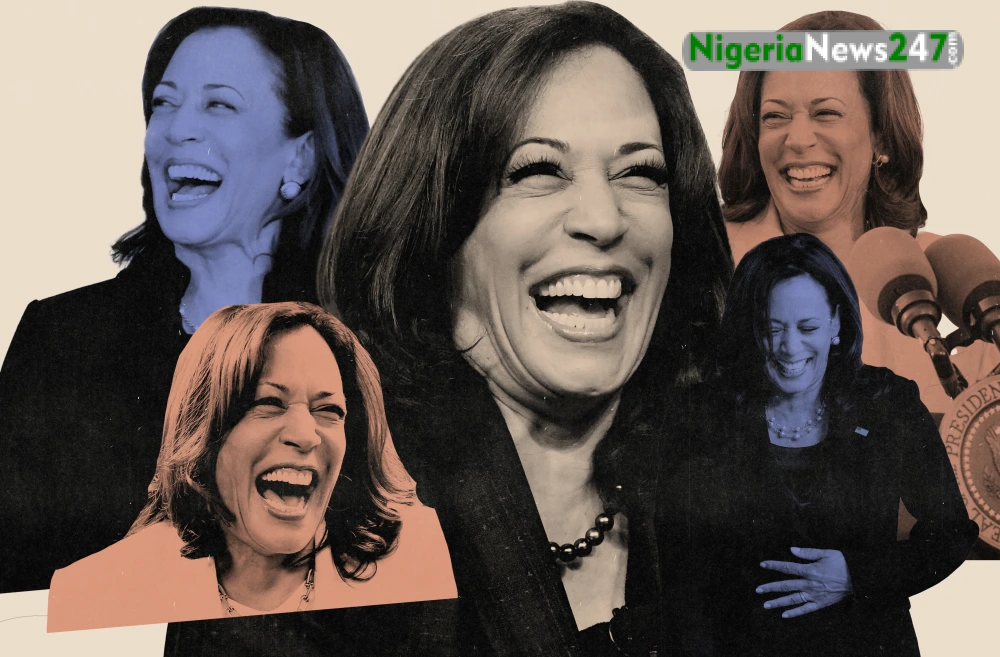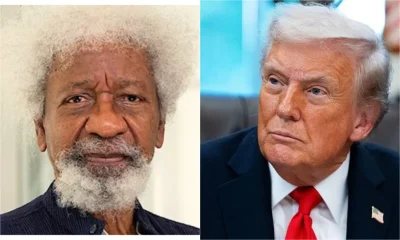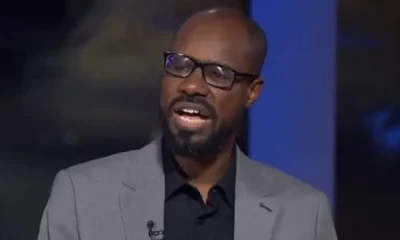WORLD
Trump’s Campaign Seeks to Paint Harris as ‘Crazy’ Due to Her Laugh

Vice President Kamala Harris has faced criticism for her race, gender, parental status, and, most recently, her laugh.
Conservatives have labeled her laugh as “crazy,” “nuts,” and a “cackle,” which experts argue is laden with sexist undertones. During a recent campaign stop, former President Donald Trump mocked Harris’ laugh, calling her “laughing Kamala” and describing her as “crazy” and “nuts.”
The National Republican Senatorial Committee released a memo highlighting perceived weaknesses in the Democratic camp, including Harris’ “habit of laughing at inappropriate moments.” Experts say this focus on Harris’ laugh reflects blatant misogyny and parallels the historical labeling of women in power as “crazy,” a practice that dates back to when women were diagnosed with hysteria for laughing excessively in the 19th century.
Oneka LaBennett, an associate professor of gender and sexuality studies at the University of Southern California, noted an added racial dimension to the criticism. She said that discomfort with Black and brown joy, exemplified by the mocking of Harris’ laughter, is a way of attacking her public expression of joy.
LaBennett highlighted how accusations of being “crazy” or “hysterical” have long been used against women, particularly Black and brown women, who face tangible consequences for displaying emotions publicly. In politics, similar stereotypes apply, such as the “angry Black woman” trope applied to figures like Michelle Obama.
The Trump campaign responded by stating, “President Trump is a truth-teller,” and criticized Harris’ policies. Right-wing media personalities, like Fox News host Sean Hannity, have also focused on Harris’ laugh in their discourse.
Harris herself has embraced her distinctive “belly laughs,” attributing them to her mother’s influence. She emphasized the importance of not conforming to others’ perceptions of how one should act.
Supporters and experts have pointed out the double standard, with feminist author Gina Barreca suggesting that Harris’ laughter demonstrates confidence and independence, which can make men uncomfortable. Unlike Harris, Trump is not scrutinized for his emotional expressions, despite rarely laughing himself.
LaBennett concluded that Harris’ laugh is an asset in connecting with voters, as it conveys authenticity and relatability, making her seem like “a real person, like everybody else.”















![Top Nigeria Newspaper Headlines Today 25th June 2024 [Tuesday] 87 Nigeria Newspaper Headlines](https://nigerianews247.com/wp-content/uploads/2024/04/Nigeria-Newspaper-Headlines-80x80.png)

![[VIDEO] Tinubu Stumbles while Boarding Presidential Parade Vehicle at Eagles Square 90 Tinubu Stumbles while Boarding Presidential Parade Vehicle at Eagles Square](https://nigerianews247.com/wp-content/uploads/2024/06/Tinubu-Stumbles-while-Boarding-Presidential-Parade-Vehicle-at-Eagles-Square-80x80.jpeg)


You must be logged in to post a comment Login